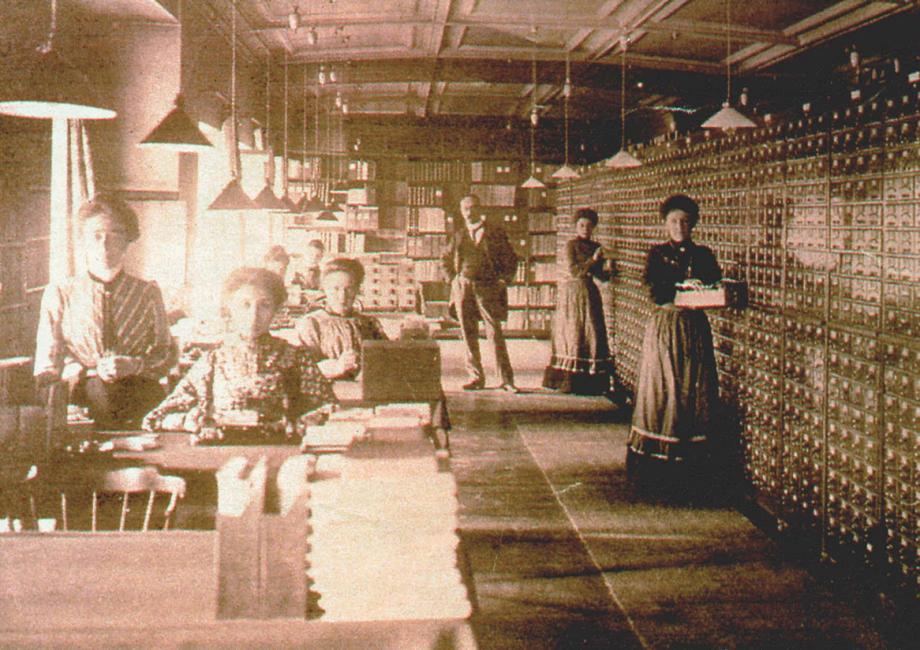The Mundaneum, a Proto-Internet Made of Index Cards

Atlas Obscura on Slate is a new travel blog. Like us on Facebook, Tumblr, or follow us on Twitter @atlasobscura. Below is an excerpt from a forthcoming Atlas Obscura book.
The Mundaneum was, to put it mildly, an ambitious undertaking. Belgian lawyer Paul Otlet and Nobel Peace Prize winner Henri LaFontaine established the project in 1910 with the aim of compiling the entirety of human knowledge on 3-by-5 index cards. The collection was to be the centerpiece of a “world city” designed by Le Corbusier, a nucleus of knowledge that would inspire the world with its libraries, museums, and universities.
To address the daunting task of arranging bits of paper into a coherent compendium of world history, Otlet developed a system called Universal Decimal Classification. Over the next few decades, a growing staff created and cataloged more than 12 million cards summarizing the contents of books and periodicals. Having assembled this wealth of knowledge, Otlet began offering a fee-based research service. Queries came in by mail and telegraph from around the globe at the rate of 1,500 per year.
With the paper-based system becoming cumbersome by 1934, Otlet hoped to move onto another system: a mechanical data cache accessible via a global network of what he termed “electric telescopes.” To his dismay, the Belgian government had little enthusiasm for the idea. With World War II looming and priorities elsewhere, the Mundaneum moved to a smaller site, eventually ceasing operations after years of financial instability. The final blow came during the Nazi invasion of Belgium, when soldiers destroyed thousands of boxes filled with index cards, hanging Third Reich artwork in their stead.
Otlet died in 1944, his Mundaneum and World City mere memories. He is now regarded as one of the forefathers of information science—his vision of a globally searchable network of interlinked documents was a very early version of the World Wide Web.
The remains of the Mundaneum—books, posters, planning documents, and drawers with original index cards—are now on display at the Musée Mundaneum in Mons. More photos of the Mundaneum can be seen on Atlas Obscura.
Unusual repositories of knowledge:
undefined

